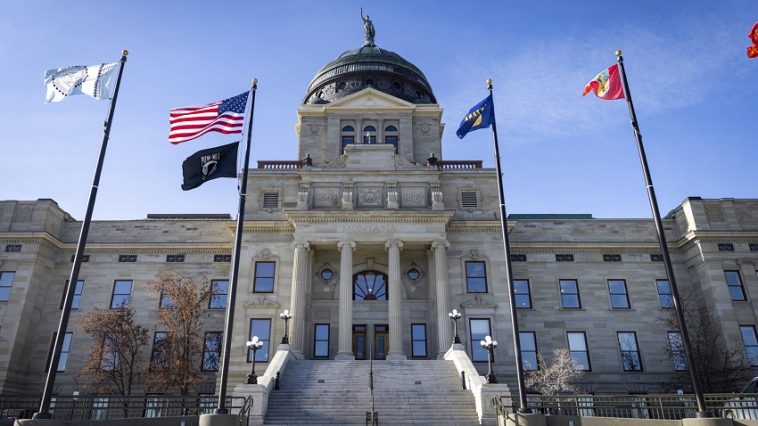Missoula, MT – After months of deliberation, Republicans on the Montana Senate Select Committee on Judicial Oversight and Reform have unveiled a series of 27 proposed bills aimed at overhauling the state’s judiciary. The proposals come in response to concerns over judicial overreach, with GOP leaders arguing that recent court rulings have exceeded the judiciary’s authority.
The committee, established in April by Senate President Jason Ellsworth (R-Hamilton), has spent months discussing and reviewing the role of the judiciary, culminating in a set of legislative measures intended to reshape how Montana’s courts operate. Ellsworth created the committee after a series of state Supreme Court decisions that he and other Republican leaders believed overstepped judicial boundaries, especially in matters of constitutional interpretation and state laws.
Sen. Barry Usher (R-Yellowstone County), the committee’s vice chair, explained that the goal of the proposed reforms is to ensure a fair and impartial judiciary. He acknowledged the significance of the changes but emphasized that the judiciary must remain accountable to the public.
One of the most significant proposals is the creation of a “Court of Chancery,” a new state-level court designed to handle business disputes, land use issues, and challenges to the constitutionality of laws. Under this proposal, the Court of Chancery would be appointed by the governor and would have its decisions appealed to the state Supreme Court, which, under the Montana Constitution, has jurisdiction over all other courts.
Another key proposal would require judicial candidates to declare their party affiliation during elections, a move that has been debated in previous legislative sessions. Supporters of this idea argue that nonpartisan elections fail to provide voters with enough information about the candidates’ ideologies. Usher noted that constituents often contact lawmakers seeking advice on judicial races and that party affiliation would help voters better understand a candidate’s beliefs.
“We get more phone calls from constituents about judges’ races,” Usher said. “Whether or not you believe in the parties that we have, it helps identify who the person’s core beliefs are.”
The committee’s proposals have sparked considerable debate, particularly from Democrats. From the outset, Democratic lawmakers refused to participate in the committee, claiming that its true intent was to undermine the judiciary’s independence. Last month, several Democratic lawmakers, including Rep.-elect James Reavis (D-Billings), joined former Republican Governor Marc Racicot and retired District Judge James Reynolds in a press conference to oppose the bills. They argue that proposals such as partisan judicial elections pose a direct threat to judicial impartiality.
Racicot, who served as governor for two terms as a Republican but has become increasingly critical of the current GOP leadership, condemned the proposals as part of a broader effort to politicize the judiciary.
“This is really a poorly disguised dog whistle for ‘How do we get control of virtually everything, so we can do everything we want to do our way?’” Racicot said. “What that reflects is a lack of confidence and trust in the people that you serve.”
Despite the criticism, Usher expressed disappointment that Democrats did not participate in the committee’s work, feeling it led to missed opportunities for constructive dialogue. While he agreed with the goal of maintaining an independent judiciary, he contended that Montana’s courts have become politicized and have “legislated from the bench” on issues that, in his view, should be left to elected lawmakers.
“There’s a lot of people in our voter base that believe that our judiciary in this state has leaned one way or the other inappropriately,” Usher said. “These bills are designed to balance that and rebuild trust with voters.”
The 27 bills still need to go through the full legislative process, which means they will likely be debated and amended during the 2025 legislative session. Until then, the future of these proposed reforms remains uncertain, and Montanans will continue to grapple with the ongoing debate over the balance of power between the judiciary and the legislature.



